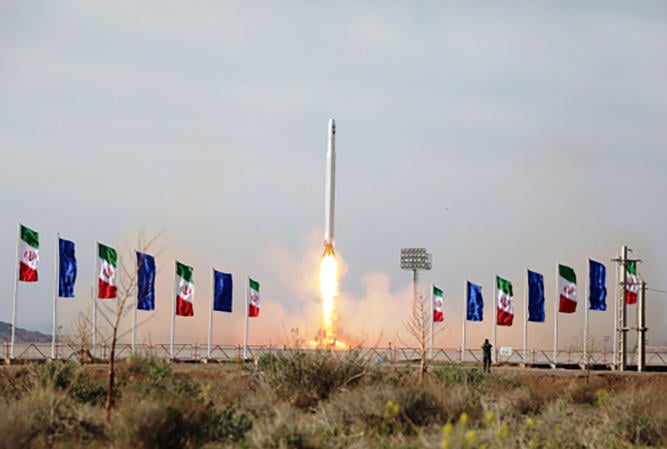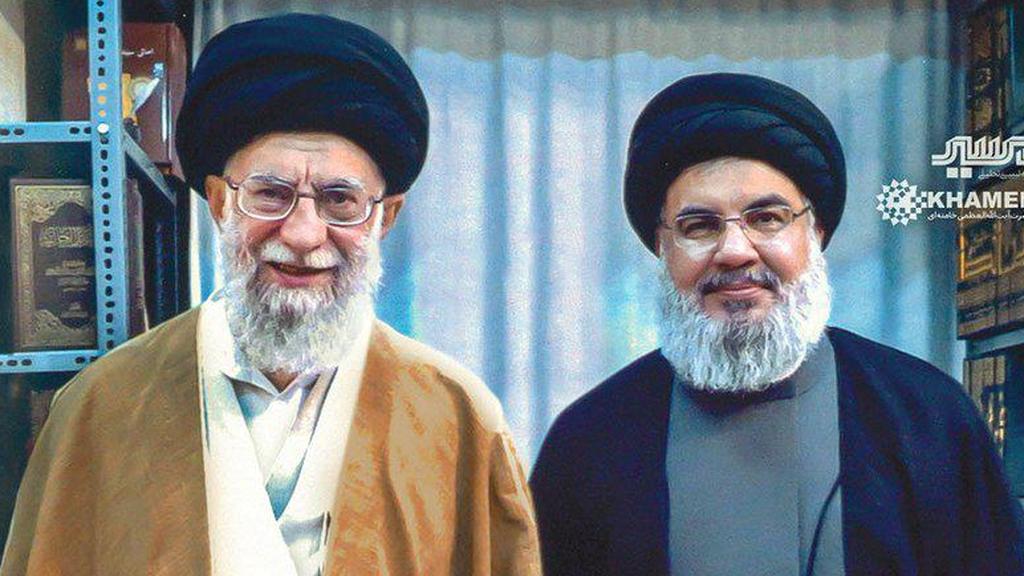Getting your Trinity Audio player ready...
Prime Minister Benjamin Netanyahu recently called on the United Nations Security Council to reimpose, or “snapback,” international sanctions and restrictions on the Islamic Republic of Iran – a terror-sponsoring regime that seeks to wipe Israel off the map.
Just as the prime minister was speaking, another country was addressing the Security Council in defense of Iran: the People’s Republic of China.
6 View gallery
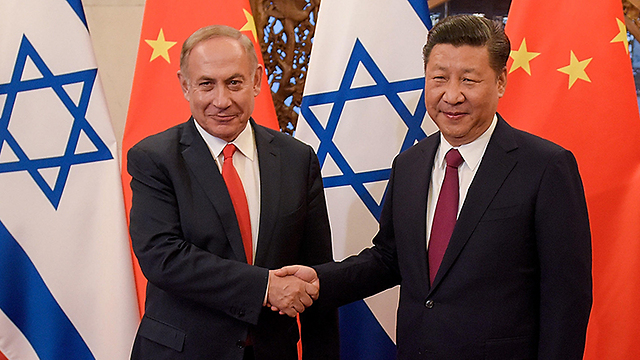

Prime Minister Benjamin Netanyahu meeting with Chinese President Xi Jinping during a visit to Beijing
(Photo: Getty Images)
Most Israelis would be shocked to learn this. According to a December 2019 Pew research poll, 66 percent of Israelis hold a favorable opinion of China against 25 percent who hold an unfavorable view.
As support for the Chinese Communist Party plummets worldwide, Israel is one of only nine countries where positive views of Beijing recently increased.
Sino-Israeli comity is particularly evident in the economic sphere: China accounts for roughly 10 to 15 percent of the Israeli economy. Sino-Israeli trade stood at $15.3 billion in 2018, an almost 4,400 percent increase in real dollar terms since 1995.
Admittedly, other American allies have strong ties to China. Chinese trade with Germany, for example, stood at $231 billion in 2018, an almost 2,000 percent increase in real dollar terms since 1992.
6 View gallery


Chinese and Israeli workers building the Tel Aviv light rail system
(Photo: Moti Kimchi)
But trade hasn’t made Beijing popular in Deutschland. Only 34 percent of Germans, according to the same Pew poll, hold a favorable view of China compared to 56 percent that do not. This is one of the lowest favorability ratings for China in Europe.
Something apart from commerce might be at play. Israelis love Asian culture. After their mandatory military service, many young Israelis backpack through Asia, including in China.
They bring back stories of the Middle Kingdom and how much Israelis and Jews are admired there. That stands in stark contrast to Europe where anti-Semitic attacks have soared and Israelis are often treated with hostility.
Less romantic Israelis, attuned to the vagaries of power politics, worry about America’s desire to leave the Middle East. They believe that Western Europe has already turned against Israel.
6 View gallery
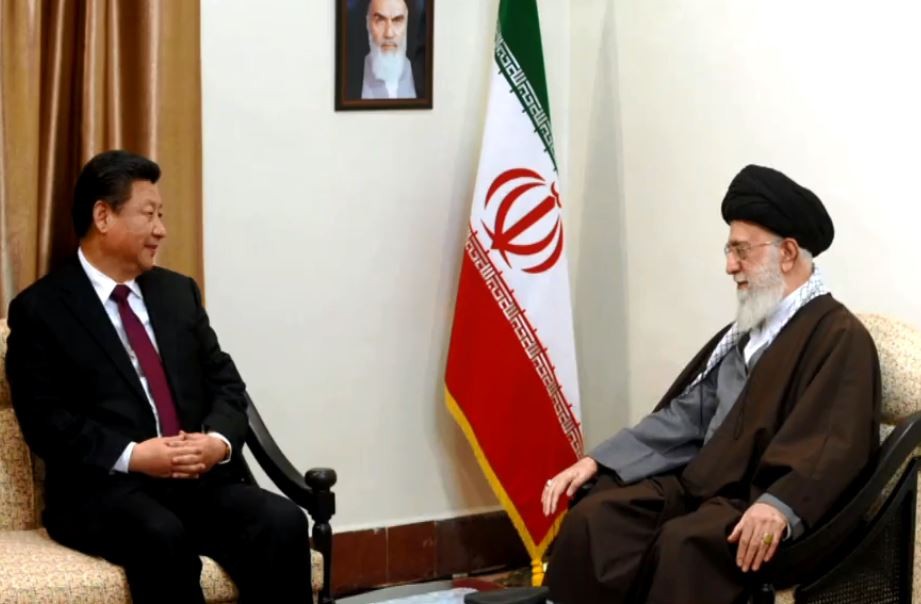

Chinese President Xi Jinping meeting with Iranian Supreme Leader Ayatollah Ali Khamenei
(Photo: Screenshot)
They have thus adopted a hedging strategy that includes ties with Beijing and Moscow, hoping this can translate into greater influence in a multipolar world. This would be particularly important in countering Iran.
But for any Israeli who fears a nuclear-armed Iran with advanced ballistic and cruise missiles capable of bringing a second Holocaust, China’s full-throated defense of the Islamic Republic should set off alarm bells.
Speaking at the virtual UN Security Council meeting, China’s ambassador Zhang Jun emphasized that the fatally-flawed Iran nuclear deal “is legally-binding and should be effectively implemented.”
He opposed any attempt to extend the arms embargo on Iran that is scheduled to expire this October. He vowed that China would not recognize attempts by the United States to “snapback” UN sanctions.
Even more shocking: Zhang defended recent Iranian space launches, which the United States, Europe and Israel all know are part of Iran’s development of long-range ballistic missiles. China endorsed the launches as purely commercial and scientific in nature.
China’s continued illicit barter transactions with Iran, including the import of Iranian oil in violation of U.S. sanctions, explains much of this. But, despite offers from Saudi Arabia to replace every barrel of Iranian crude, China has opted to keep the Islamic Republic and the Iran nuclear deal afloat. The question for every Israeli should be, “why?”
The answer: China stands to benefit from the expiration of sanctions on Iran. A Pentagon report warns that China (and Russia) are set to sell Iran fighter jets, battle tanks, attack helicopters, and modern naval capabilities once the UN arms embargo expires.
6 View gallery
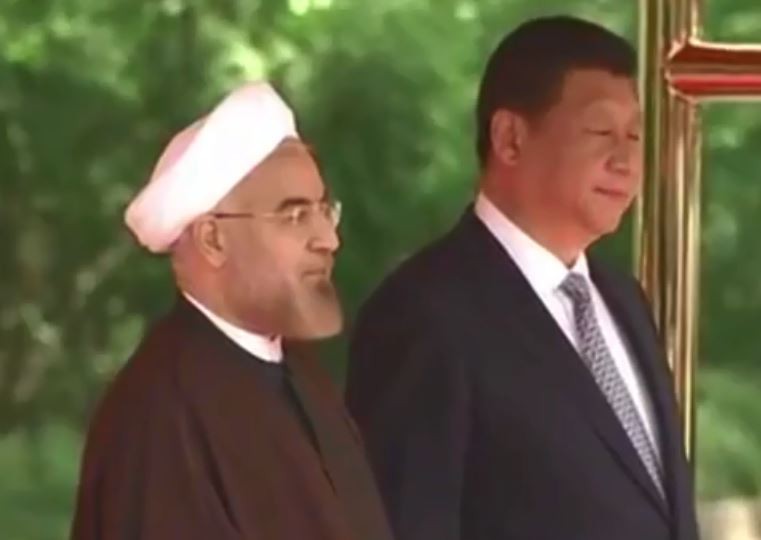

Chinese President Xi Jinping and his Iranian counterpart Hassan Rouhani
(Photo: Screenshot)
When missile restrictions expire in 2023, China’s long-time illicit transfers of missile-related parts will become robust and overt commercial trade. If past is prologue, Tehran will share these capabilities with its terrorist proxies like the Lebanese Hezbollah, Shiite militias in Iraq, Hamas and Islamic Jihad in Gaza, and the Houthis in Yemen.
China has already incorporated Iran into its global Belt and Road Initiative to build a transportation, energy, and communications network running from China through Central Asia and the Middle East into Europe. In fact, some reports traced Iran’s coronavirus outbreak to a Chinese infrastructure project in Qom.
Even amidst a widening pandemic, direct flights flew daily between Iran and several cities throughout China, due to pressure from Beijing. China now sees the legalized arms trade as the logical next step in its expanding this relationship.
If China embraces and protects the world’s most anti-Semitic regime – even arming it with weapons to attack the world’s only Jewish State – perhaps it’s time for Israelis to reexamine ties with Beijing. Does the People’s Republic have Israel’s best interests at heart, or is Israel a pawn on the chess board to achieve Beijing’s global ambitions?
The United States has finally grasped the threats posed by the Chinese Communist Party. Flooding them with cash and integrating them into the global economy made China’s leaders rich, but not moderate.
Israel may have had good intentions in strengthening financial and other ties. But now, Israelis need to abandon their delusions: China is supporting the Islamic Republic of Iran, a revolutionary regime that denies the Holocaust and is building the weapons to bring about another one. This is Israel’s wakeup call.
Mark Dubowitz is chief executive of the Foundation for Defense of Democracies, a non-partisan think tank focused on national security issues; Richard Goldberg, a former National Security Council official, is a senior advisor at the FDD


